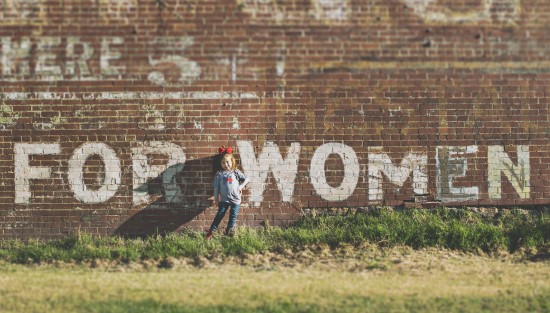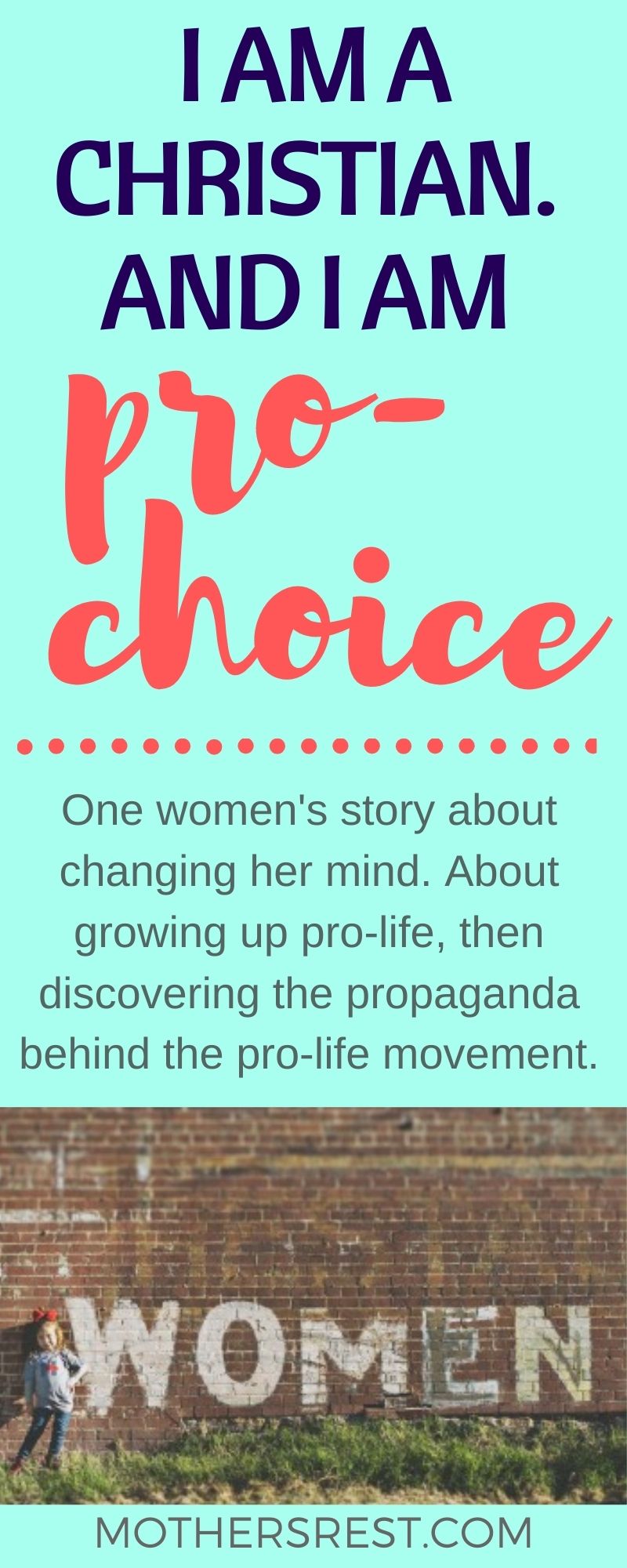By Kari, guest blogger
These aren’t perfect words, but they are from my heart about changing my mind.
I was raised as a conservative Christian in the 1980s and 1990s, which is to say that I grew up as a pro-life person. My parents weren’t protesting abortion clinics (although I knew people who did that), but I understood that “abortion stopped a beating heart” and that it was wrong.
When the internet was invented and I started to read about and interact with different points of view, I learned that there were people who believed that birth control caused abortion. That surprised me.
I learned that there was a difference between the abortion pill, RU486, and the morning-after pill, Plan B. I thought it was odd that everyone had been conflating the two, and I noticed that nobody who was speaking about these issues so loudly seemed to know a lot about how women’s fertility worked.
Getting pregnant
When I went off the pill and started using a diaphragm and charting, I learned quite a bit about how fertility worked, things that I definitely wasn’t taught at school. The school lessons seemed to be mostly about getting through the absolute least amount of information while still teaching us about the sperm and the egg. The men I knew who couldn’t even look at a box of tampons without wincing definitely didn’t know about ovulation and cervical mucus and luteal phase and implantation. I thought that was strange.
I got pregnant very easily and didn’t have a complicated pregnancy, but I spiraled into a dark depression nonetheless. This was compounded because of the very poor maternity leave policy I experienced (and, to be honest, the fact that I was lied to about the policy – by a “Christian” man – which caused additional stress, but that is another story for another day). I had a lot of support and a very loving partner, but it was incredibly difficult.
In those dark days, I came to the realization that no one should have to go through pregnancy and birth if they did not feel they were ready to do so.
A few years after my son was born, I got an IUD, in part because of extremely heavy and painful periods. One week later, the Hobby Lobby ruling took place.
That was the last day I considered myself to be pro-life, because that ruling was based not on facts about women’s health and about preventing abortion and unwanted pregnancy but on the idea that a “Christian” company was squeamish that IUDs might possibly be able to cause abortions. Birth control does not actually cause abortions. This was a decision about giving companies more power, not about reducing abortion.
Fact vs. myth
In the years since Hobby Lobby, I have done a lot of reading and research. And I have learned that many of the things I was told to be true by the church are, in fact, not true.
There is no evidence that a fetus feels pain until 24 weeks.
Having an abortion does not increase your risk of breast cancer.
There are many women who do not regret their abortions and who know it was the right moral choice for them.
Abortion is not regularly used as birth control.
Birth control should not be equated with abortion.
Ectopic pregnancies cannot be “transferred” to the uterus.
Nobody is ripping babies out of the womb to murder them at 9 months.
Abortion is not particularly dangerous (unless access is restricted).
Discovering truth
I have read about the underground clergy networks who helped women access abortion. I have read doctors’ accounts of women who died before Roe and how grateful those doctors were when abortion became legal in our country. I have also read information that made me realize that many very conservative Protestant churches were pro-choice in the 70s.
I have listened to my friends who have had abortions talk about their choices and how they were grateful those choices were available. I have listened to my friends who have struggled to conceive and how scared they are about these laws that might make that more difficult.
Most recently, the arguments about heartbeats have been frustrating to read in that they do not indicate an actual knowledge of a women’s reproductive system. The presence of heart cells that beat does not mean that there is a tiny fully-formed person inside of a woman.
Throughout my almost 40 years, I have been on both sides of this debate and I have to tell you that I have found that the arguments against abortion are often in bad faith and they are riddled with untruths and emotional manipulation.
I understand that you might be extremely uncomfortable with the idea of abortion, but I’d like to ask you to consider that that might be because of this propaganda that is, frankly, not accurate.
Laws like the new one in Texas don’t include anything to improve healthcare, education, paid family leave, or housing. And I’m not picking just on Texas here. America has a very poor maternal mortality rate and it continues to rise.
There are a lot of things we could do to show that we value women and mothers but the only actions I see taking place are reducing access to birth control and abortion.
It is okay for you to believe that every prenate, every fetus, is a life equal to the mother, but that does not make it true for everyone.
It isn’t true for me. When I had an early miscarriage, I did not see that the same as my later planned pregnancy with my son.
I don’t know if there is a magical date where a prenate or a fetus becomes a person. I think it might be different for different women in different pregnancies. I think that is why we have to trust women to make these decisions.
I hope you will trust me when I say that I have changed my views not out of emotion or convenience but because I have done the reading and listening.
I am a Christian. I love Jesus. And I am pro-choice.
Helpful books
Here are two books I recommend that have helped me think about abortion as a Christian:
For your convenience, I’ve included affiliate links. Read my Disclaimer to learn more.
Trust Women: A Progressive Christian Argument for Reproductive Justice by Rebecca Todd Peters
Life’s Work: A Moral Argument for Choice by Dr. Willie Parker
Share reflections on your own journey below or on Facebook at MothersRest.
About the guest blogger:
Kari is a librarian and a divinity school student who loves Jesus, science, and books. You can read her call to action against book bans in this blog post.
Photo credit: Photo by Katherine Hanlon on Unsplash


Great article. Our journeys to this point are very similar. Thanks for writing this.
I was so glad Kari agreed to let me share her words. I’d struggled with how to address this issue without leaning on sarcasm or falling into despair. Glad it resonates with you, too!